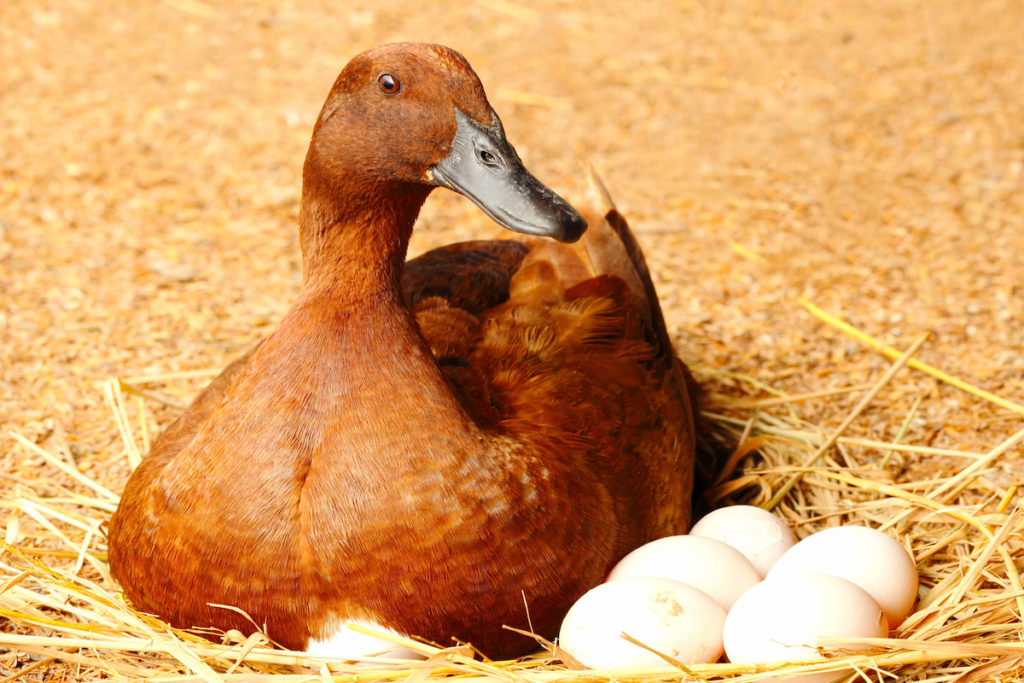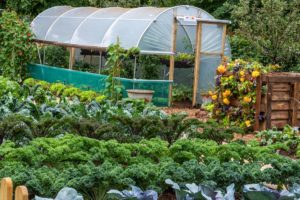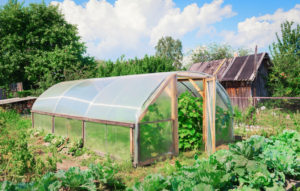If you’re looking to diversify your homestead with a unique and rewarding venture, consider duck farming.
Not only do ducks provide delicious eggs and meat, but they also serve as natural pest control agents for your garden and fields.
By integrating ducks into your homesteading strategy, you can create a sustainable and self-sufficient system that benefits both you and the environment.
We’ll explore the ins and outs of raising ducks on your homestead, from selecting the right breeds to managing their dietary needs and health.
Whether you’re a seasoned homesteader or just starting out, you’ll find valuable information and practical tips for successfully incorporating duck farming into your operations.
Choose the right duck breed
Select breeds that are well-suited for your climate and the purpose of your farm. For example, Muscovy ducks are great for meat and eggs, while Khaki Campbell ducks are prolific egg layers.
For instance, if you’re looking to raise ducks for meat and eggs, consider breeds such as Muscovy ducks and Khaki Campbell ducks.
Muscovy ducks are a great choice for meat production, as they are known for their rich, lean flesh and are relatively easy to raise.
They are also known to be hardy and disease-resistant, making them a reliable choice for farmers.
Khaki Campbell ducks, on the other hand, are prolific egg layers and are well-suited for small farms or backyard flocks.
They are also known for their friendly and docile temperament, making them a great choice for farmers who are looking to raise ducks for both meat and eggs.
By selecting breeds that are well-suited for your climate and purpose, you can ensure the success and productivity of your farm.
Provide adequate housing
Ducks need shelter from predators and extreme weather conditions. Build a duck house with nesting boxes, perches, and ventilation to keep your ducks healthy and happy.
To ensure the health and happiness of your ducks, it is essential to provide them with a safe and secure shelter from predators and extreme weather conditions.
A well-designed duck house can provide your feathered friends with protection from potential threats, as well as a comfortable environment to nest, perch, and relax.
When building a duck house, be sure to include features such as nesting boxes, perches, and adequate ventilation to keep your ducks healthy and happy.
Nesting boxes provide a safe and cozy space for your ducks to lay their eggs and raise their young, while perches give them a place to rest and observe their surroundings.
Proper ventilation, on the other hand, helps to regulate the temperature and humidity levels within the duck house, preventing the buildup of harmful bacteria and ensuring that your ducks remain healthy and thrive.
By providing your ducks with a sturdy and comfortable shelter, you are not only ensuring their survival but also promoting their well-being and overall quality of life.
Maintain proper nutrition
Offer a balanced diet of layer feed, fruits, vegetables, and grains. Avoid giving them food scraps or bread, as this can cause health problems.
When it comes to feeding your backyard chickens, it’s important to offer a balanced diet that includes a variety of nutrient-rich foods.
Avoid giving them food scraps or bread, as these can cause health problems and lead to obesity.
Instead, provide a layer feed that is specifically formulated to meet their nutritional needs.
In addition to layer feed, offer fruits, vegetables, and grains to provide a well-rounded diet.
Leafy greens like kale, spinach, and collard greens are all excellent sources of calcium and other essential nutrients.
Fruits like berries, melons, and apples are a great source of vitamins and antioxidants.
Whole grains like oats, barley, and brown rice provide important fiber and nutrients like selenium and manganese.
By providing a balanced diet, you can ensure your chickens stay healthy and thrive.
Manage the flock
Keep the flock size manageable to ensure proper care and management. Start with a few ducks and gradually expand your flock as you gain experience.
Managing a duck flock requires careful consideration of flock size to ensure proper care and management.
Beginning with a small number of ducks and gradually expanding your flock as you gain experience is essential for maintaining a healthy and thriving flock.
Starting small allows you to become familiar with the unique needs and behaviors of ducks, enabling you to provide individualized care and attention to each bird.
As you gain experience, you can gradually add more ducks to your flock, ensuring that you can continue to provide adequate space, feed, and shelter for all of your birds.
A smaller flock size reduces the risk of disease transmission and allows you to monitor the health of each duck more effectively.
By starting small and gradually expanding your flock, you can ensure that your ducks receive the proper care and attention they need to thrive.
Monitor egg laying
Collect eggs daily and store them in a cool, dry place. Keep track of egg-laying patterns to determine when your ducks need more calcium or other nutrients.
To ensure the health and productivity of your ducks, it is important to collect eggs daily and store them in a cool, dry place.
This will help prevent the growth of harmful bacteria and keep the eggs fresh for longer.
By storing eggs in a cool, dry place, you can help maintain their nutritional value and prevent the yolks from becoming overly large or misshapen.
Moreover, tracking your ducks’ egg-laying patterns can provide valuable insights into their health and nutritional needs.
By paying attention to the frequency and consistency of egg laying, you can determine when your ducks need more calcium or other essential nutrients.
For instance, if your ducks are laying fewer eggs than usual, it may indicate a deficiency in calcium, which is essential for eggshell formation.
In such cases, providing your ducks with a calcium supplement can help improve their egg laying and overall health.
Collecting eggs daily and storing them in a cool, dry place, as well as tracking egg-laying patterns, are important aspects of duck husbandry that can help ensure the health and productivity of your flock.
By paying attention to these details, you can provide your ducks with the best possible care and maximize their potential for egg production and overall well-being.
Control pests
Keep an eye out for pests like mites, lice, and fleas. Use organic pest control methods like dipping, spraying, or dusting to keep your ducks healthy.
Keep an eye out for pests like mites, lice, and fleas, which can cause discomfort and health issues for your ducks.
To keep your feathered friends healthy, consider using organic pest control methods like dipping, spraying, or dusting.
Dipping involves submerging your ducks in a solution of water and organic pesticides, such as neem oil or pyrethrin, to kill parasites and their eggs.
Spraying involves using a fine mist of organic pesticides to target specific areas of your ducks’ feathers and skin.
Dusting involves applying a powdered organic pesticide to your ducks’ feathers and skin to kill parasites and their eggs.
These methods are not only effective, but also gentle on your ducks and the environment.
You can incorporate natural remedies like garlic, wormwood, or chamomile into your duck’s diet to help repel pests.
By taking proactive steps to control pests, you can ensure the health and well-being of your ducks and prevent the spread of diseases.
Harvest meat and eggs
When your ducks reach the appropriate age, you can harvest their meat or eggs for consumption. Ensure that you process them safely and humanely.
When your ducks reach the appropriate age, you can harvest their meat or eggs for consumption.
It is essential to ensure that you process them safely and humanely to avoid any potential health risks and to maintain the welfare of the animals.
To safely harvest the meat, you should first ensure that your ducks are of a suitable age and weight, typically between 12 and 18 weeks for meat ducks and 18-24 weeks for breeding ducks.
You should also properly clean and dress the carcasses, and use appropriate cooking methods to prevent foodborne illness.
In addition to harvesting the meat, you can also collect eggs from your ducks for consumption.
It is important to maintain cleanliness and hygiene when handling the eggs, as any bacteria or contaminants can cause serious health issues.
You should wash your hands and any utensils or equipment before and after handling the eggs, and store them in a clean, dry place.
Furthermore, it is essential to humanely euthanize any ducks that are no longer productive or that are suffering from health issues, as part of responsible duck husbandry.
Plan for the future
Consider expanding your flock, diversifying your duck breeds, or experimenting with different farming practices to continue improving your homestead’s productivity and sustainability.
If you are seeking ways to boost your homestead’s productivity and sustainability, consider expanding your flock, diversifying your duck breeds, or experimenting with different farming practices.
Expanding your flock by introducing additional breeds or raising more birds can help increase egg production and provide a more diverse range of products for sale or consumption.
For example, adding a breed like Khaki Campbells, which are known for their high egg production and adaptability to diverse climates, can help increase your homestead’s overall productivity.
Experimenting with different farming practices, such as rotational grazing or incorporating polycultures, can help improve soil health, reduce pests and diseases, and increase crop yields.
By adopting these strategies, you can not only enhance the productivity of your homestead but also contribute to its long-term sustainability.
Want More? Dive Deeper Here!
Hey there! If you’re the type who loves going down the rabbit hole of information (like we do), you’re in the right spot. We’ve pulled together some cool reads and resources that dive a bit deeper into the stuff we chat about on our site. Whether you’re just killing time or super into the topic, these picks might just be what you’re looking for. Happy reading!






